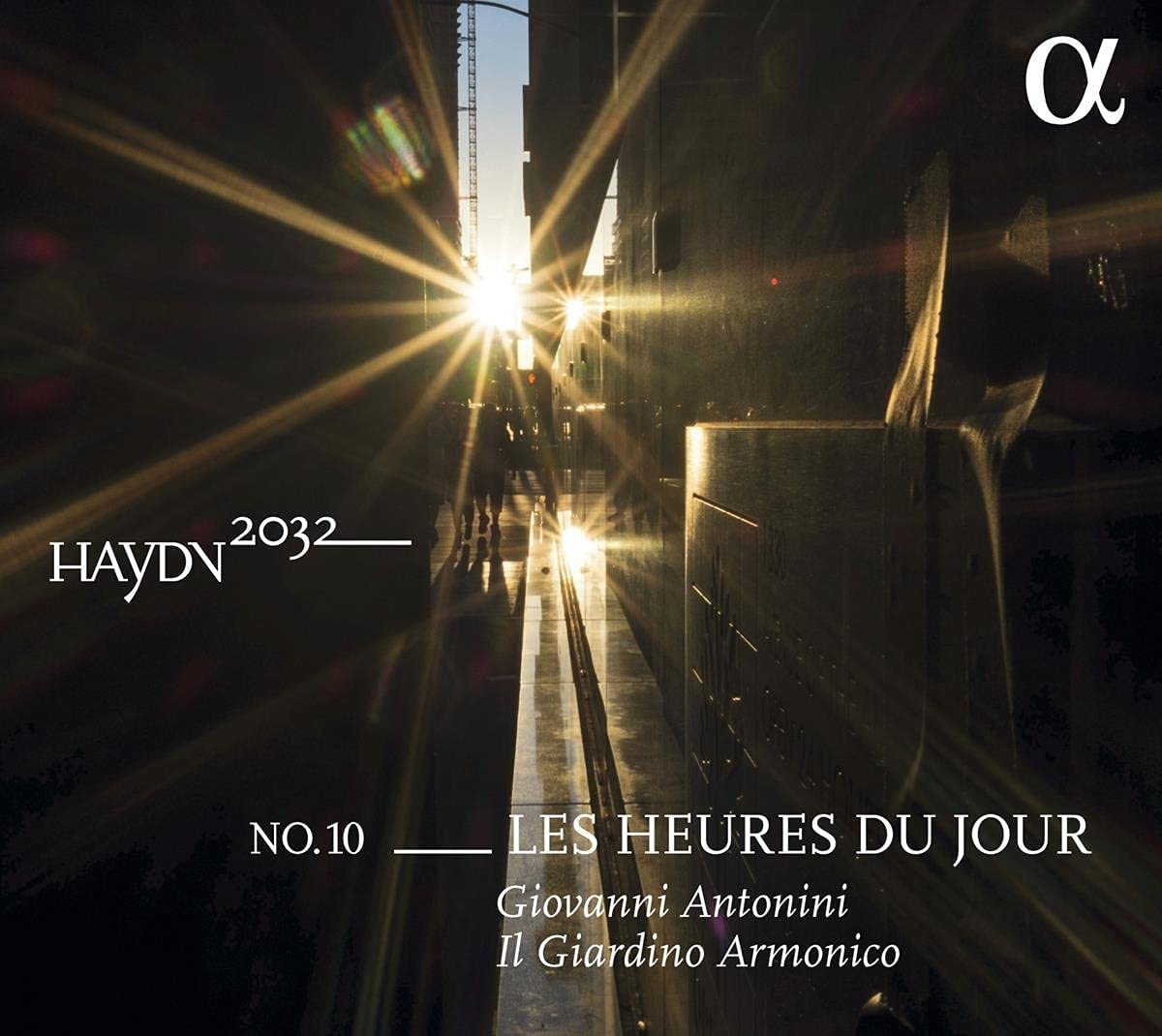Haydn 2032, vol. 10
Il Giardino Armonico, Giovanni Antonini
78:36
Alpha Classics Alpha 686
Click HERE to buy this on amazon.co.uk
[These sponsored links help the site remain alive and FREE!]
For the latest instalment (the tenth) in their superb cycle of Haydn symphonies, Giovanni Antonini and his Il Giardino Armonico turn their attention to the earliest of Haydn’s symphonies to have retained a regular place in the affections of the composer’s admirers. In part, this is almost certainly due to the programmatic context of the trilogy, each of which bears a title devoted to the times of the day: morning, noon and evening. Yet equally special is the extraordinary concertante element in the three works, which could almost be thought of as an updated version of Bach’s Brandenburg Concertos.
An explanation for the profusion of solo passages can be found in the background to the symphonies, which date from 1761, the year in which Haydn was appointed vice-Kapellmeister to Prince Anton Esterházy. That year also coincided with the expansion of the group of chamber musicians employed by the prince to a full orchestra including a number of exceptional musicians. It seems the idea for an orchestral work that colourfully depicted a storm came from Esterházy himself and Haydn not only duly obliged in the final movement of ‘Le Soir’, in which we hear the first raindrops, thunder and then the full force of the storm, but added two further symphonies enabling him to exploit to the full the capabilities of the new orchestra. This Haydn did by providing both his wind and string players with numerous opportunities to shine in the many solos he gives them over the course of the trilogy.
Perhaps one of the most memorable programmatic moments occurs right at the start with the slow introduction to ‘Le Matin’, a depiction of a sunrise from the first rays, here barely heard, followed by a crescendo which spellbindingly builds dissonance upon dissonance. In Antonini’s hands it’s a wonderfully controlled breath-taking moment, dispelled only by the brightness of the morning’s sunny, cheerful allegro, led by the first of a number of outstandingly played flute solos. Among other special moments in a set of works teeming with incident is the highly original slow movement of ‘Le Midi’, cast as a full-scale opera seria accompagato recitative followed by an expressive adagio aria. The recitative starts out broadly, but bursts into a highly dramatic central section before again subsiding to more contemplative mood that leads to the aria, largely a duet between violin and cello, but also incorporating other solos.
The performances maintain the near exemplary standard that has been a hallmark of the entire series. Outstanding playing, superbly balanced orchestral sound, swinging between exhilarating, full-blooded verve and the most delicate, filigree textures, they are in the main also beautifully paced. Antonini avoids the trap of taking final movements too fast, which would obscure some of the many points they have to make. Only in the case of the bassoon-coloured Andante (ii) of ‘Le Soir’ did I feel the tempo might be a little slow, but it is so lovely, with wonderful contributions from the solo cello, that to make too much of it would be excessively ungrateful.
In keeping with previous issues there is an addition to the symphonies, in this case Mozart’s well-known Serenade in D, ‘Serenata Notturna’, obviously an appropriate encore to a group of works concerned with times of day. Its three movements are as stylishly conveyed as would be expected, the timpani that give the first movement in particularly that feeling of mocking pomp crisply played. The final movement is played with a great sense of fun, with what sound like spontaneous and witty embellishments adding to a sheer joie de vivre that Mozart would surely have relished.
In sum little more need be said. If you’re following this series you’ll need no encouragement from me to add this CD to the collection. If you’re not, well, it’s time you were!
Brian Robins
